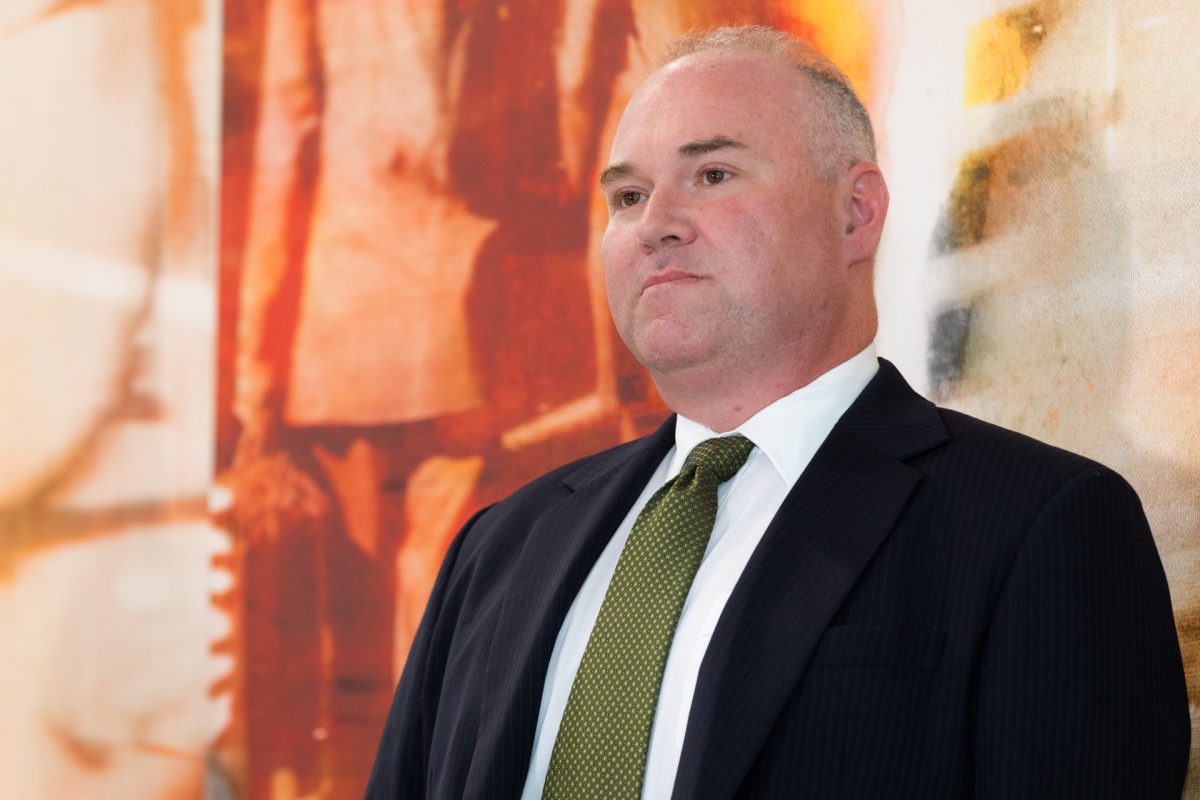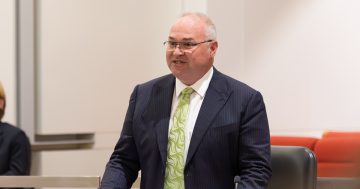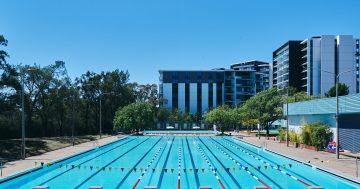
ACT Greens MLA Andrew Braddock wants separate swimming facilities and times for people who are averse to public sessions. Photo: Michelle Kroll.
The ACT Greens’ “inclusive” swimming push is anything but. In fact, they want taxpayers to shell out for exclusive use of a pool for select members of the community.
MLA Andrew Braddock may be well-intentioned. Helping more people to be water safe and enjoy physical health and fitness is an admirable goal.
But this type of proposal which on the surface appears harmless – in fact, all parties agreed to his motion in the Assembly – poses questions for us all about the direction of Australia as a free and open society.
Mr Braddock at least acknowledged that imposing exclusive swimming sessions on public pools was impractical. However, his motion still calls for future ACT Government swimming infrastructure to be designed in an “inclusive manner”, such as an enclosed smaller pool for those requiring privacy or sensory-friendly facilities and individual gender-neutral changing facilities.
The aim is to make it easier for sections of the community averse to public sessions to use a pool and learn to swim.
These include certain women from cultural communities and trans and gender-diverse people.
The government has already trialled gender-specific swim sessions and supported two short-term programs through the annual Sport and Recreation Grants to support migrant and refugee swim programs, so the idea is not new.
But Mr Braddock’s successful motion broadens the concept and entrenches it as government policy.
Mr Braddock says the government could contract some of the city’s smaller, private pools to hold specific sessions, at least, it is assumed, until public pools have facilities to cater for these groups.
The question is: should taxpayers have to pay for this, and should government be encouraging the establishment of separate facilities on cultural grounds for such a small minority as the hard-to-define trans and gender-diverse community?
As a community, Australia celebrates the fact that it has discarded social rules that inhibited and held back women and, for the most part, embraced sexual equality and equal participation, reducing exclusive men’s clubs to anachronisms.
In recent times, Australia has accepted homosexuality, overwhelmingly supported same-sex marriage and is coming to an increasingly sophisticated view on gender.
Despite growing inequality, we still consider ourselves an egalitarian society, at least one with equal opportunity. There is no greater symbol of that than the almost stripped-bare environment of the beach and public pool where people of all backgrounds, shapes and sizes co-exist safely and without self-consciousness.
Mr Braddock’s proposal undermines this openness and panders to, say, sections of the Muslim community whose view on women and gender bear no relation to the modern democratic society that Australian women have spent decades working for and continue to work for.
If groups wish to hire facilities for private, exclusive use or businesses such as gyms want to set up single-gender premises, much like men’s clubs continue to exist, then, that is their business.
But public policy like Mr Braddock champions, which eventually would result in separate facilities, is regressive and would contribute to less openness.
The different migrant streams that have come to this country have absorbed our way of life and enhanced our society at the same time, but government should not have to make allowances for and help perpetuate cultural beliefs and practices that are antithetical to that open and free society where men and women mix comfortably on equal terms.
The other question about this type of approach is just how many different segments of society do we expect government, or a pool, to cater for and at what cost?
At least Mr Braddock’s motion calls for the government to ensure that public pools clearly communicate that all are welcome, as they should be.
But all parties in the Assembly might wish to ponder the unintended consequences of other sections of the motion.





















